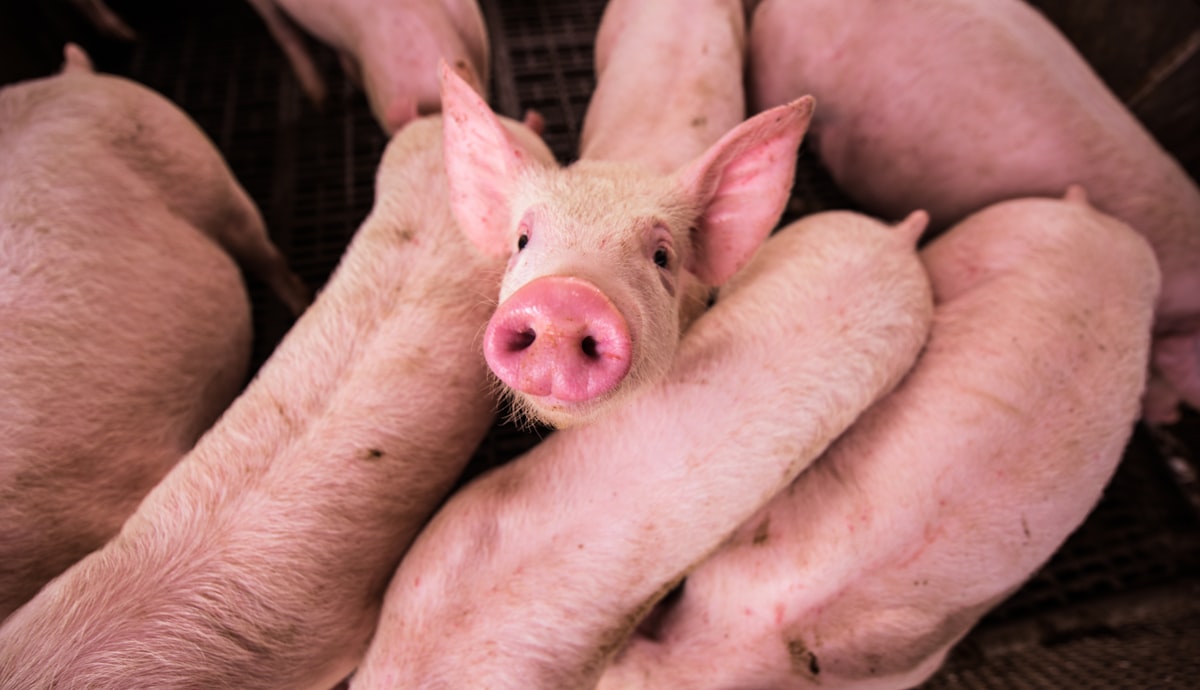A xenotransplantation is an option, pending the arrival of a human organ
Organ transplantation from an animal is not simple, and it cannot yet be called a success. Kidneys are the most requested organ in the world, followed by the liver, heart, and pancreas. Ten percent of the patients on the waiting list die for lack of donations.

The emergence of new options to help people who need organ transplants should not discourage their donation, according to Rubén Argüero Sánchez, head of the Surgery Department at the UNAM School of Medicine. On January 11, the University of Maryland, in the United States, announced that the world's first transplant of a genetically modified pig heart was performed on a 57-year-old man with intractable heart failure, a process that involved the participation of the company Revivicor Inc.
At the time of the announcement, the patient had three days of survival with the organ, which shows that it works without being immediately rejected by the body, but to be considered a successful procedure, the university researcher pointed out, it is necessary to wait at least 100 days. Argüero Sánchez emphasized: "This news quickly stimulates to continue the research, we cannot say that it is a success. We have to wait prudently, here the word prudence must come first because doing xenotransplantation (putting an animal organ in a person) is not simple, it generates a series of problems that include bioethics, respect for animals, and many other things".
Currently, 10 percent of the patients in the world who are on the waiting list to receive an organ die due to the lack of donations, especially of kidneys, an organ whose failure causes renal insufficiency, which requires hemodialysis and has multiple consequences for the affected person. This is not the first time that a procedure of this type has been attempted, specifies the researcher, recognized for being the first Latin American to perform a heart transplant; however, up to now, unfortunately, the patients in whom an organ of animal origin has been placed have not survived for more than 30 days.
The dream of transplanting functional animal organs to humans is more than three decades old and it has been seen that the pig is phylogenetically closer to humans, which is why the pericardium has been used from this animal to build heart valves; the urethra, for use in humans; and islets of the pancreas, that is, several tissues have already been used. Before 2000, kidney transplants from chimpanzees and other primates were attempted, and unfortunately, the patients died.
The key to this new transplant is the work done by the private company Revivicorp, an example of genetic goldsmithing that works with genes that have been linked to the body's rapid response to rejection and human genes that have been put into the pigs to make their organs more tolerable to humans and that have facilitated host acceptance of a foreign organ. In its farms, the company produces hearts, lung lobes, and kidneys but the cost of maintenance is extremely high due to the care the animals require, something that hardly a public health system could afford.
"To say that you already have pigs and organs would discourage donation and that is a worldwide problem, especially when it comes to kidney, liver, heart, pancreas, and everything else. The organ that is required in an enormous quantity is the kidney. We have to take great care of this," the researcher emphasized. The risks and costs involved in maintaining a farm with animals free of viruses and bacteria or capable of modifying them so that the organs are not rejected, as well as ensuring that the organ has the required size and characteristics, should not be overlooked. That is also where the opportunity given to the patient in the U.S. lies.
The professor of the School of Medicine also recommended that, in the case of access to these organs, they should be seen more as a transitional step in the process of obtaining a compatible human organ, as well as continuing to investigate options such as the use of stem cells for the regeneration of damaged human organs. Due to all the implications that transplants have, nowadays the world is working on tissue regeneration where the use of stem cells has shown important advances and, in Mexico, it has been seen that 70 percent of the patients (out of 108 helped with the Mexican Institute of Social Security) showed important improvements, research that, due to several factors, is currently stopped.
Part of the questions of this work that have yet to be answered is why it works in some cases and not in others. It is believed that stem cells stimulate cellular reprogramming and the response of tissues such as the heart, some regions of the lung, and pancreas, but this is part of what still needs to be investigated. For all these reasons, Argüero Sánchez emphasized that organ donation should be maintained and the donation of brain-dead patients should be explored, as well as those whose heart has stopped working, strategies that are applied in Spain, considered the nation with the highest donation rate in the world.
"There is a long way to go and in our environment, unfortunately, this is not the ideal moment, but we have to review all the processes in intensive care, give greater weight to the transplant coordinators, pay them adequately and stimulate not only the surgeon but also the anesthesiologist, the nurse, all those who participate in the donation process," he commented.
In an article published by Argüero Sánchez, in Mexico's Gaceta Médica, Uruguay is the Latin American nation with the highest rate of organ donation, followed by Brazil and Argentina, while our country is in the ninth position. Furthermore, the Global Observatory of Donation and Transplantation reports that in 2019 (a year without pandemic) in Mexico 3,242 transplants of different types were performed, a figure that was reduced to 994 in 2020.




